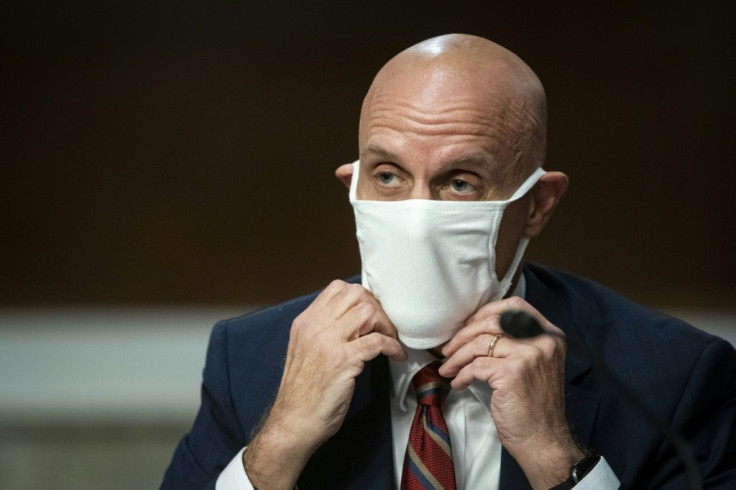White House Blocks Vaccine Safety/Efficacy Guidelines For November Election, FDA Pushes Forward Regardless
KEY POINTS
- Changes in vaccine review guidelines would mandate that any prospective vaccines have a two-month waiting period after the final dose to confirm safety and long-term immunity
- The Trump administration had said it would reject those measures. Such a delay would make delivery before the presidential election, a key promise of Trump's, almost impossible
- The FDA has pushed forward anyway, tucking the change into a memo. This lacks the power of a formal guideline change but still signals that it will be required
The White House has followed through on its threat to reject vaccine safety guidelines from the FDA, the Associated Press reports. The added regulations would have mandated a two-month period between the last dose of a prospective COVID-19 vaccine and the final collection of data, ensuring safety and long-term efficacy but delaying delivery of the drugs.
The Trump administration had signaled it would not accept the guidelines. Such a delay would make delivering a vaccine before the November presidential election almost impossible. Donald Trump has consistently downplayed the danger of the pandemic, saying both that it will fade on its own and that a vaccine will be ready for release “ momentarily.”

Any changes to vaccine guidelines would be run through the White House Office of Management and Budget, giving the Trump administration the ability to veto their publication. It would seem that it did exactly that, preventing the FDA from publicly releasing the new guidelines.
Despite this, the FDA has gone forward with the changes, inconspicuously folding them into a memo for an Oct. 22 meeting of its vaccine advisory panel. That release doesn’t carry the same weight that a formal change would but still signals that the FDA will require the waiting period for any prospective vaccines.
An FDA spokesperson told the AP that the guidelines are “under review” but that “the FDA has already communicated with individual manufacturers about its expectations.”
Dr. Peter Marks, head of the FDA’s vaccine division, further clarified that point in an interview with the nonprofit Friends of Cancer Research. “The companies know what we’re expecting,” he said.
An anonymous senior administration official confirmed that the publication of changes had been blocked and said that there was “no clinical or medical reason” to mandate a waiting period.
© Copyright IBTimes 2025. All rights reserved.





















